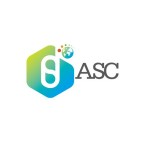BEIJING–(BUSINESS WIRE)–#ASC–On May 12th, 2021, the ASC20-21 Student Supercomputer Challenge finals finished at Southern University of Science and Technology (SUSTech) in Shenzhen, China. For the on-site competition, Jinan University was declared the Champion, Tsing Hua University won the Silver Prize and e Prize, and Sun Yat-sen University scored the Highest LINPACK. For the online competition, National Tsing Hua University was the Champion. Many other teams also took home top honors.
ASC20-21 was jointly organized by Asia Supercomputer Community and Southern University of Science and Technology. More than 300 teams from universities all over the world participated, and the Top28 entered the finals. As the first international student supercomputer challenge after the COVID-19 outbreak, the ASC20-21 finals included both on-site and online participations. The Top21 teams from the Chinese mainland joined the on-site finals at SUSTech, and the Top7 teams outside of the Chinese mainland participated virtually using AWS cloud computing platform.
In the finals, teams were asked to design and build their own clusters, run, and optimize cutting-edge science and engineering applications including HPL&HPCG benchmarks, pulsar search, language exam, quantum computing simulation and a mystery application – MPAS-A (Model for Prediction Across Scales). Unique for ASC20-21 Student Supercomputer Challenge was the group competition where 28 teams formed 7 groups and tackled the most current application of VENAS (New Coronavirus Evolution Anticipation).
The contest for the Champion of the ASC20-21 finals was extremely fierce. At the end, the Jinan University team performed perfectly in multiple tasks including the language exam and quantum computing simulation, demonstrating a comprehensive and profound understanding of supercomputing system, and achieving excellent performance optimization. They won their first ASC championship. The team of Tsing Hua University also delivered stunning performance in HPL&HPCG benchmarks, pulsar search and other tasks, and won the Silver Prize.
The e Prize was for the pulsar search task using PRESTO software. The participants were asked to use the real observational data gathered by Five-hundred-meter Aperture Spherical radio Telescope (FAST) to search through for pulsars, which was a daunting task because the collected data were buried under enormous RF noise interference. At the end, the team of Tsing Hua University significantly improved the data gathering and processing performance by inventing an original solution, and won the e Prize award.
The Sun Yat-Sen University team ran the HPL benchmark within 3000W power consumption and achieved record-high persistent floating-point performance of 79.04 TFLOPS. They won the Highest LINPACK award.
The group of Northwestern Polytechnical University, Huazhong University of Science and Technology, Tsing Hua University, and Ural Federal University efficiently optimized VENAS, drastically increasing its performance over 10 fold, and becoming the winner of the Group Competition. VENAS catalogs the viral genome by comparing its mutation information, which helps with spread traceability of COVID-19, and better prevention and control of the pandemic.
Beihang University, Shanxi University and Tsing Hua University won the Application Innovation Award for their outstanding performance.
For the online competition, National Tsing Hua University was declared the champion. The teams of Universidad EAFIT, the Chinese University of Hong Kong, the University of Warsaw, and Monash University won the Application Innovation Award.
Jack Dongarra, Member of National Academy of Engineering, and Distinguished Professor at the Oak Ridge National Laboratory and the University of Tennessee, said, �ASC serves to challenge and inspire the next generation of HPC scientists and engineers to deliver innovative solutions using the most cutting-edge technologies. I’m sure this competition has brought many challenges, and I’m happy to see that most of those challenges were overcome. Computational science is really the fusion of mathematics, computer science and domain science. I hope your team has experienced that fusion.�
The winners of ASC20-21 finals:
On-site competition:
Champion
Jinan University
Silver Prize
Tsing Hua University
Group Competition Award
Northwestern Polytechnical University, Huazhong University of Science and Technology, Tsing Hua University, and Ural Federal University
e Prize
Tsing Hua University
Highest LINPACK
Sun Yat-sen University
Application Innovation
Beihang University, Shanxi University, and Tsing Hua University
Most Popular Team
Lanzhou University
First Prize
Sun Yat-sen University, Peking University, Southern University of Science and Technology, Huazhong University of Science and Technology, Shanxi University, Northwestern Polytechnical University, Shanghai Jiao Tong University, Beihang University, Shandong University, National University of Defense Technology, Qinghai University, University of Electronic Science and Technology of China, Zhejiang University, University of Science and Technology of China, Southeast University, Fuzhou University, Lanzhou University, Taiyuan University of Technology, and Hunan University
Online Competition:
Champion
National Tsing Hua University
Application Innovation
Universidad EAFIT, The Chinese University of Hong Kong, University of Warsaw, and Monash University
Most Popular Team
Universidad EAFIT
First Prize
University of Warsaw, Universidad EAFIT, Kasetsart University, The Chinese University of Hong Kong, Ural Federal University, and Monash University
About ASC
The ASC Student Supercomputer Challenge is the world�s largest student supercomputer competition, sponsored and organized by Asia Supercomputer Community and supported by Asian, European, and American experts and institutions. The main objectives of ASC are to encourage exchange and training of young supercomputing talent from different countries, improve supercomputing applications and R&D capacity, boost the development of supercomputing, and promote technical and industrial innovation. The first ASC Student Supercomputer Challenge was held in 2012 and since has attracted nearly 10,000 undergraduates from all over the world. The ASC20-21 Student Supercomputer Challenge is jointly organized by Asia Supercomputer Community and Southern University of Science and Technology. Learn more for ASC at http://asc-events.org/.
Contacts
Media:
Fiona Liu
[email protected]







